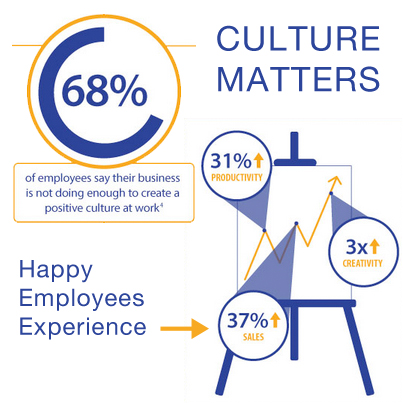
Company culture is more important than ever. It’s not that company culture was ever unimportant, but it’s quickly proving to be a “must-have” rather than a “nice-to-have.”
This leads us to today’s workplace landscape, in which HR leaders consider culture and engagement their number-one challenge, according to a recent study by Deloitte University Press. It’s clear that in order to attract, retain and engage the modern workforce, we need to focus on company culture.
Build a Strong Company Culture
You probably already have an understanding of just how important culture is to a business. A company without a strong culture is like a whale stuck in the Sahara desert (things will not end well), whereas a company with a strong culture is like a bear feasting in the fish-filled rivers of Alaska. But did you know that culture is one of the primary
drivers of employee engagement?
And did you know HR is instrumental in the creation of culture through activities like smart recruiting, effective onboarding, proactive training, performance management, and benefits programs, among others?
Why this matters: Employee engagement is largely a byproduct of how your employees view your company—specifically your culture. Because if they don’t identify with who you are as a company—why you exist and what your purpose is—it’ll be hard for them to care about much else (other than perhaps how much you pay them). On the flip
side, when your people believe in and align with your purpose, they are more engaged, perform better, and stay longer. And this process of alignment begins with HR!
If your culture is not clear—and clearly linked to what drives the success of the enterprise—then engagement is much more difficult to achieve because employees don’t know how to truly fit in.
Send us your contact info (below) and let’s continue this conversation and come up with ideas you can use in your organization: